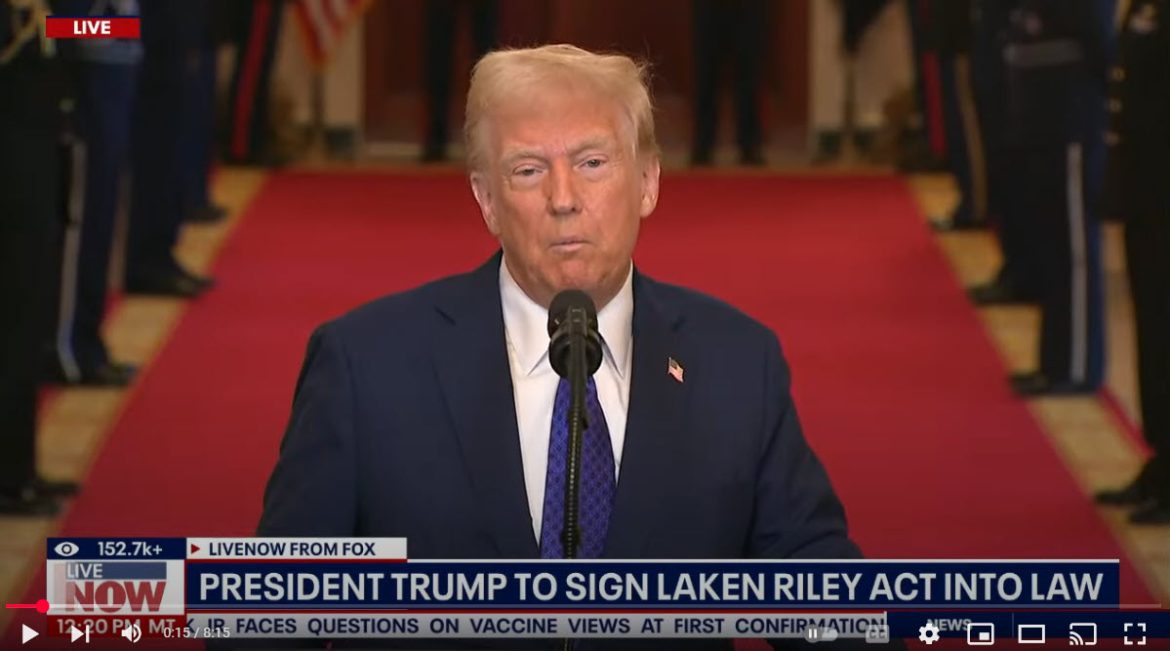President Donald Trump has signed the Laken Riley Act into law, marking the first legislative achievement of his second term. Named in honor of Laken Riley, a 22-year-old nursing student from Georgia who was tragically killed by an undocumented immigrant in 2024, the Act mandates the detention of unauthorized immigrants accused of theft and violent crimes. The legislation also empowers state attorneys general to sue the federal government for failures in immigration enforcement.
The Act received bipartisan support in Congress, passing the House of Representatives with a 263-156 vote, including 46 Democrats, and the Senate with a 64-35 vote, with 12 Democrats joining all Republicans. Proponents argue that the law addresses critical gaps in immigration enforcement and enhances public safety by ensuring that individuals accused of serious crimes are detained pending legal proceedings.
However, the legislation has faced significant criticism from civil rights organizations and some lawmakers. Opponents contend that it undermines due process rights, particularly for minors and Deferred Action for Childhood Arrivals (DACA) recipients, and could lead to racial profiling. The National Immigration Law Center has expressed concerns that the Act exploits personal tragedy to fuel anti-immigrant rhetoric and undermines constitutional protections without improving public safety.
The Laken Riley Act is expected to have substantial financial implications, with estimates suggesting an implementation cost of approximately $26.9 billion in the first year. Critics argue that the law lacks adequate funding provisions, potentially diverting resources from addressing violent crimes.
In his remarks before signing the Act, President Trump emphasized the importance of strengthening immigration enforcement to protect American citizens. He stated, “This law honors the memory of Laken Riley and ensures that no family has to endure the pain and loss that her loved ones have suffered.”
The signing of the Laken Riley Act signifies a significant shift in U.S. immigration policy, reflecting the administration’s commitment to stringent enforcement measures. As the law is implemented, it is anticipated to face legal challenges and ongoing debates regarding its impact on civil liberties and the broader immigration system.



